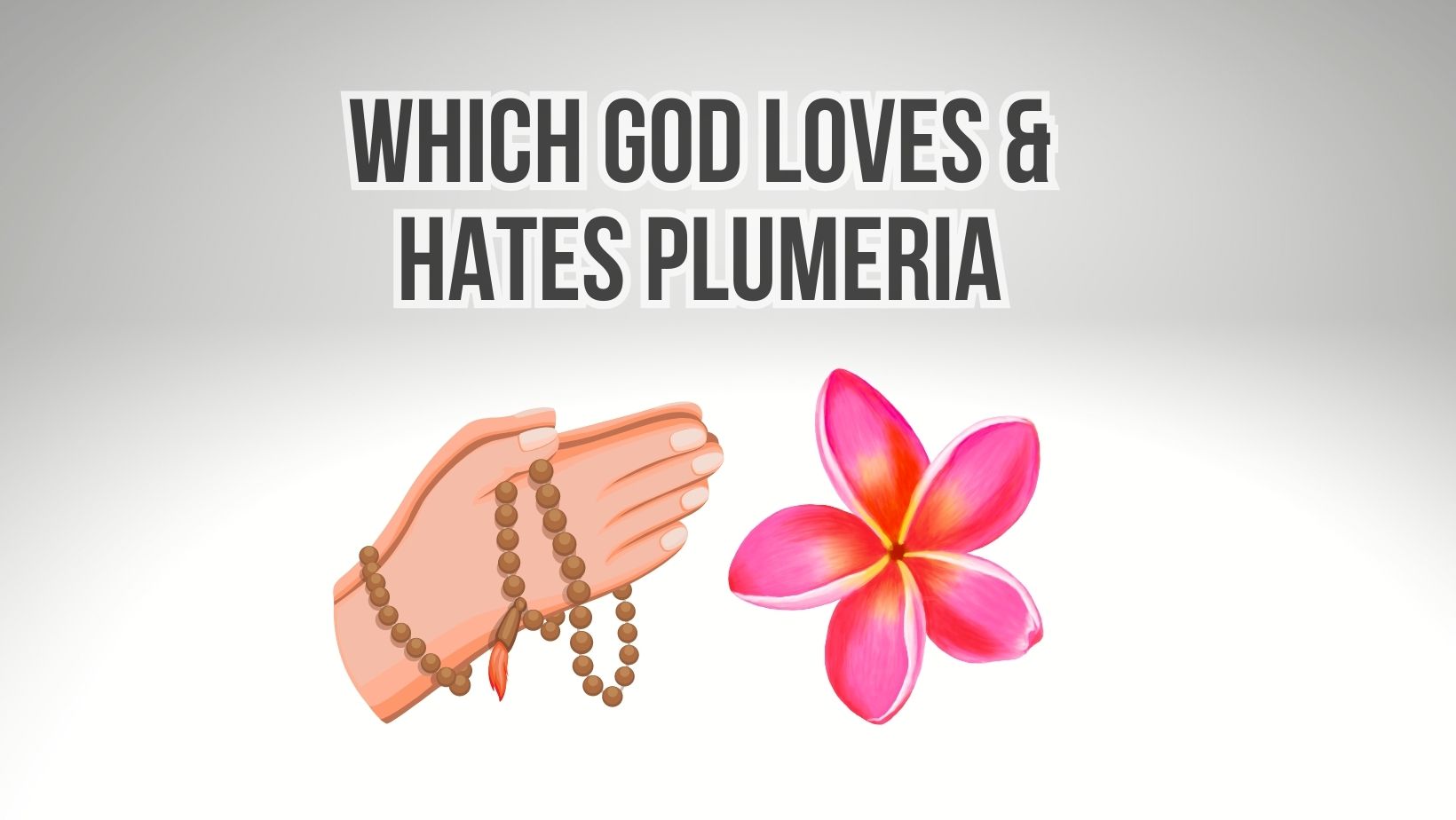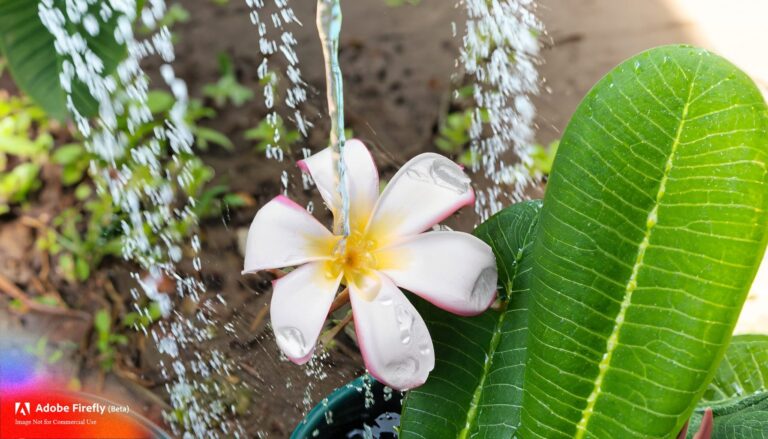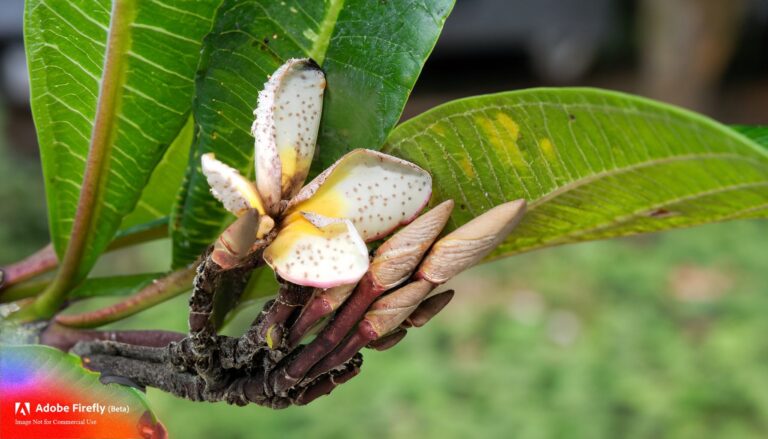
In Hindu mythology, Plumeria, known as Champa or Champaka, holds significant cultural and spiritual symbolism. The flower is deeply revered and associated with various deities and religious practices. Here are some aspects highlighting the significance of Plumeria Champa in Hindu mythology:
Significance of Plumeria Champa In Hindu Mythology
Associations with Lord Vishnu and Lord Krishna: Plumeria flowers are often associated with Lord Vishnu, the preserver and protector of the universe in Hinduism. Lord Vishnu is believed to be adorned with garlands made of Plumeria flowers, symbolizing purity, devotion, and divine grace. Additionally, Plumeria is closely linked to Lord Krishna, an incarnation of Lord Vishnu. It is said that the divine fragrance of Plumeria flowers filled the air when Lord Krishna was present.
Offerings in Temples and Rituals: Plumeria Champa is commonly used as an offering in temples and during religious ceremonies dedicated to Lord Vishnu and Lord Krishna. Devotees offer garlands made of Plumeria flowers to seek blessings, express devotion, and honor these deities.
Symbolism of Beauty and Divinity: Plumeria Champa is considered a symbol of beauty, grace, and divine love in Hindu mythology. The fragrant and delicate flowers are seen as manifestations of the divine and are believed to attract positive energy, purity, and spiritual bliss.
Use in Religious Rituals and Worship: Plumeria flowers play a significant role in Hindu worship rituals. They are used in the preparation of floral garlands, known as “Malas,” which are offered to deities during prayers and ceremonies. Plumeria’s fragrance is believed to purify the atmosphere and create a sacred ambiance during religious rituals.
Depictions in Hindu Art and Iconography: Plumeria Champa is a recurring motif in Hindu art and iconography. Paintings, sculptures, and ancient texts often depict gods and goddesses adorned with Plumeria garlands, emphasizing their divine presence and the auspiciousness associated with the flower.
Champa And Ketaki Flower
Champa and Ketaki are different flowers with different characteristics and associations in Hindu mythology.
Here are the answers to your questions:
Which God Flower Is Plumeria?
Plumeria, or Champa or Champaka, is often associated with Lord Vishnu and Lord Krishna in Hindu mythology. The flowers are considered sacred and are offered to these deities during worship and religious ceremonies.
Which God Hates Champa?
According to certain Hindu scriptures, Lord Shiva is believed to dislike or have a particular aversion to the Champa flower. However, it is important to note that interpretations and beliefs can vary across different traditions and texts.
Why Did Lord Shiva Curse The Champa Flower?
The legend behind Lord Shiva cursing the Champa flower varies in different versions. One popular tale recounts that the Champa flower was originally a devotee of Lord Shiva who wanted to offer him a garland. However, the Champa flower mistakenly offered the garland to Lord Indra due to a misunderstanding. This angered Lord Shiva, who cursed the flower never to be used in his worship. Thus, the Champa flower is believed to be prohibited from being used in Shiva puja.
Which Flower Is Not Allowed In Shiva Puja?
The Ketaki flower (Pandanus flower) is said to be prohibited from being used in Shiva puja. According to a mythological story, the Ketaki flower falsely testified about witnessing the end and beginning of Lord Shiva and Lord Brahma, leading to a dispute between them. As a result, Lord Shiva declared that the Ketaki flower would not be used in any religious rituals or offered to him.
It’s important to note that these stories and beliefs may vary across different Hindu traditions and regions. The interpretations and significance of flowers in Hindu mythology can differ, reflecting the diverse cultural practices and narratives associated with them.
Frangipanis and Plumerias: Religious Aspects and Gods
Frangipanis and plumerias, both belonging to the same plant family, are revered for their beauty, fragrance, and cultural significance in various religious traditions around the world. These enchanting flowers have been associated with gods and religious rituals, adding a spiritual dimension to their symbolism.
In Hinduism, frangipanis and plumerias are particularly sacred flowers. They are often associated with deities such as Lord Vishnu, Lord Shiva, and Lord Krishna. The flowers are commonly used in religious ceremonies, temple decorations, and garlands offered to the gods during worship. The fragrant essence of frangipanis and plumerias is believed to attract positive energy and create a divine atmosphere.
Similarly, in Buddhism, frangipanis hold great importance. The flowers are considered auspicious and symbolize purity, enlightenment, and detachment from material desires. In Buddhist art and scriptures, frangipanis are often depicted as offering flowers to the Buddha or used as adornments in sacred spaces.
In some traditional Polynesian and Pacific Island cultures, plumerias are associated with gods and goddesses. They are believed to represent deities related to beauty, love, and fertility. The flowers are used in ceremonial rituals, wedding ceremonies, and to honor ancestral spirits.
It is important to note that the religious significance of frangipanis and plumerias may vary across different cultures and regions. The interpretation and practices surrounding these flowers can differ, but they generally evoke a sense of reverence and spiritual connection.
Whether in religious ceremonies or personal spiritual practices, frangipanis and plumerias have become symbols of devotion, purity, and transcendence. Their delicate beauty and captivating fragrance continue to inspire awe and elevate the spiritual experience in various religious traditions.
Summary
The significance of Plumeria Champa in Hindu mythology reflects the deep intertwining of nature, spirituality, and cultural practices in Hinduism. The flower’s beauty, fragrance, and association with divine beings make it an integral part of religious traditions, symbolizing devotion, purity, and the presence of the divine.






